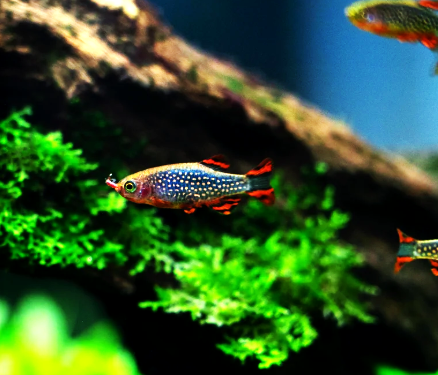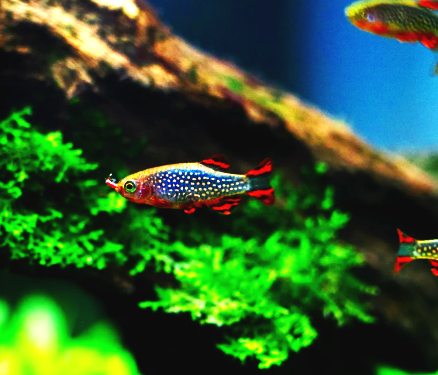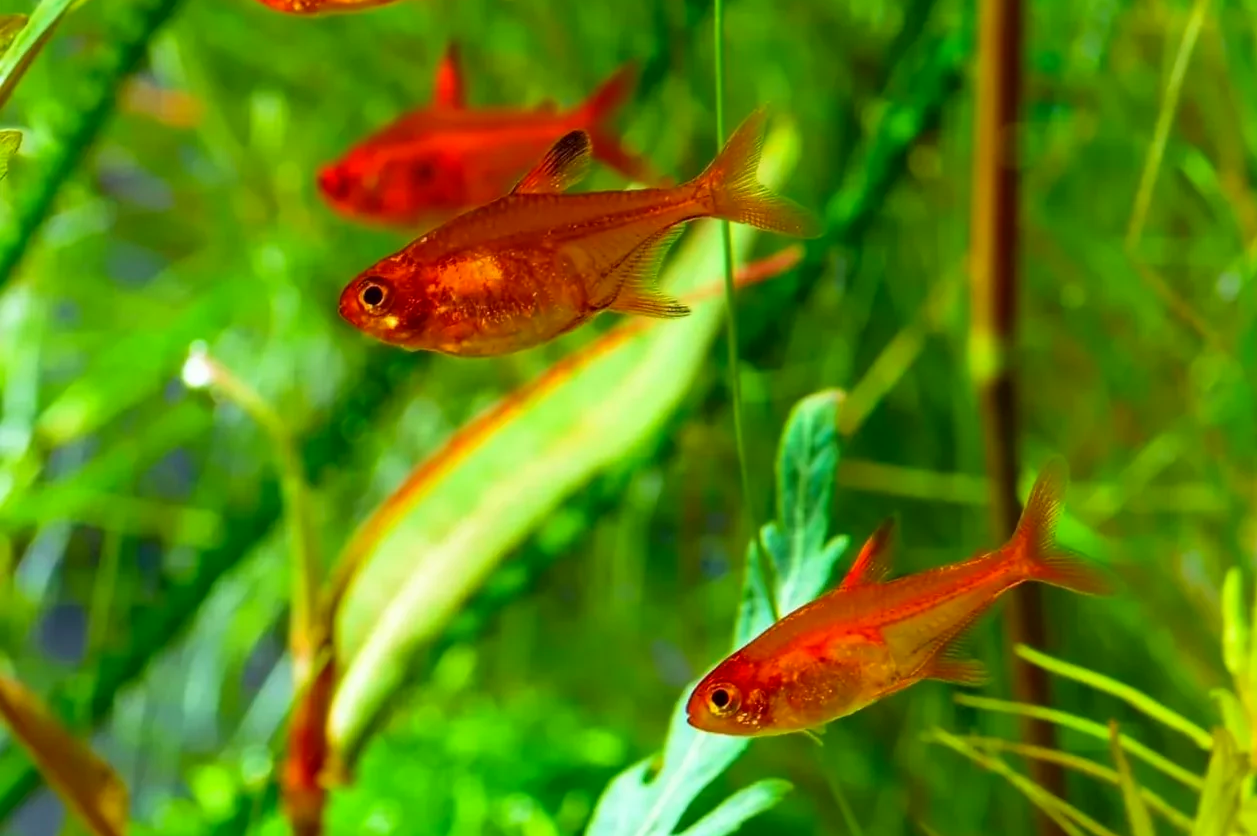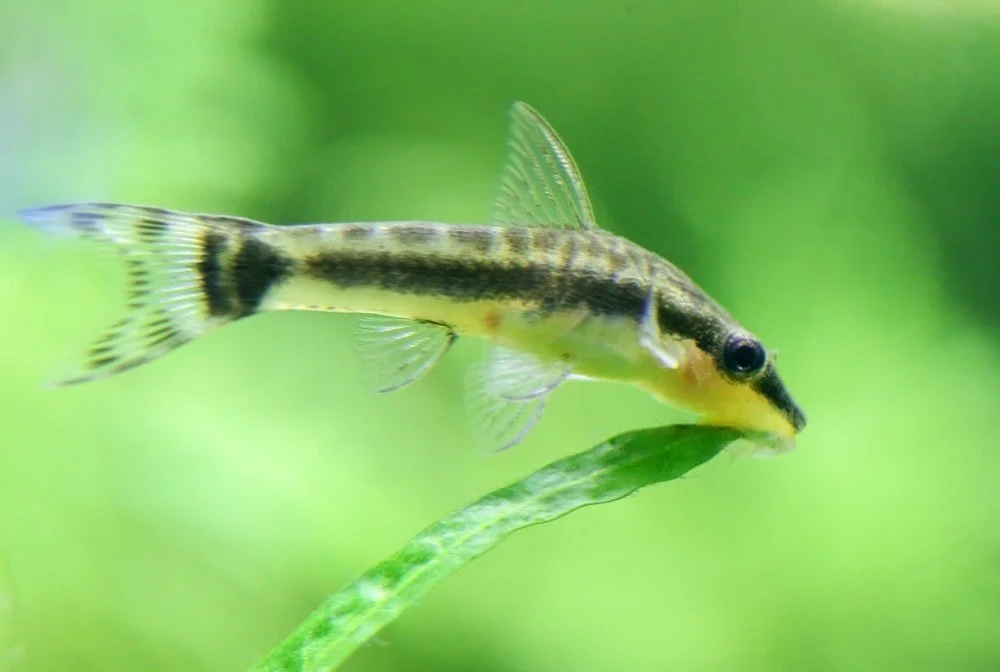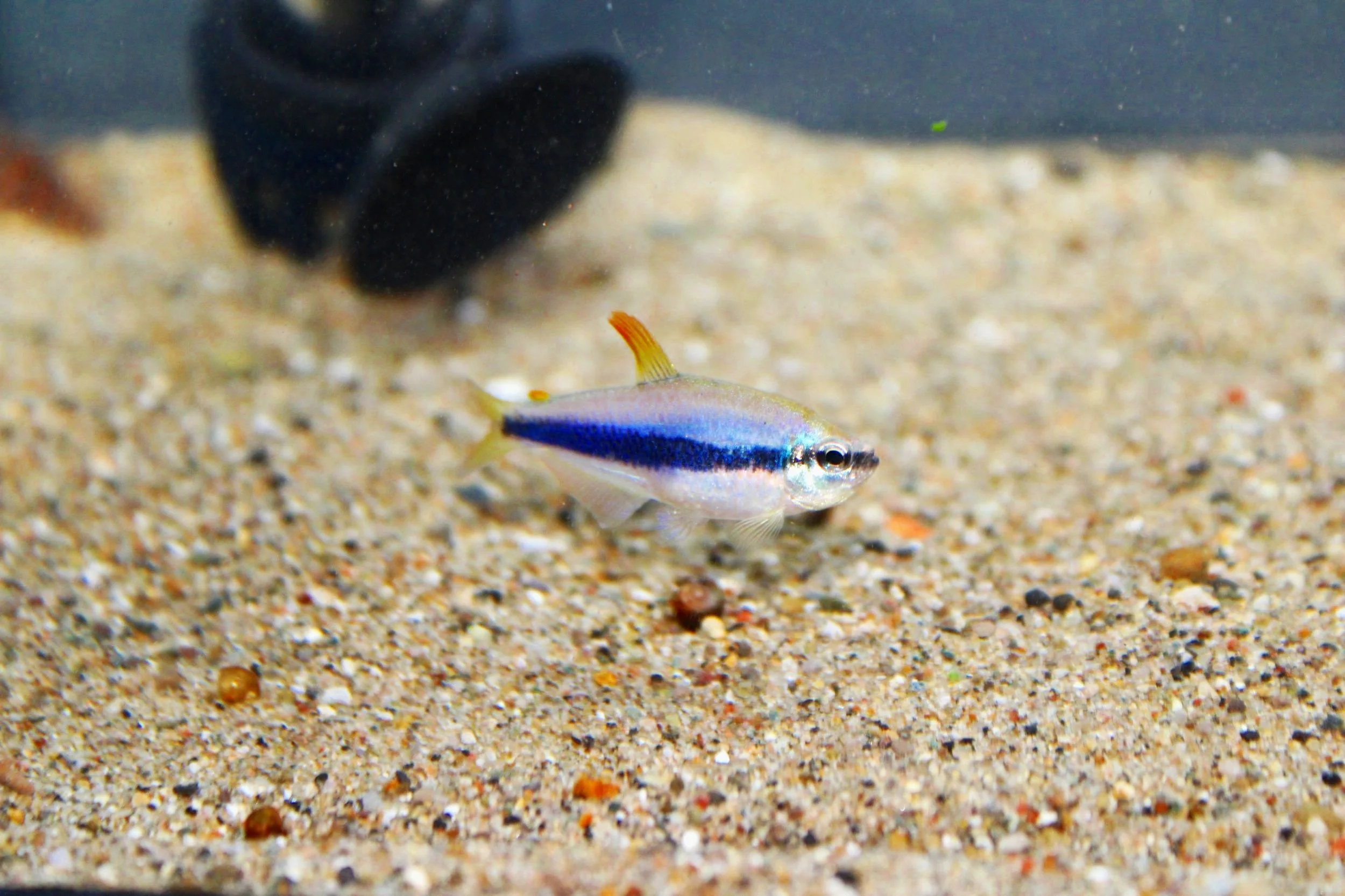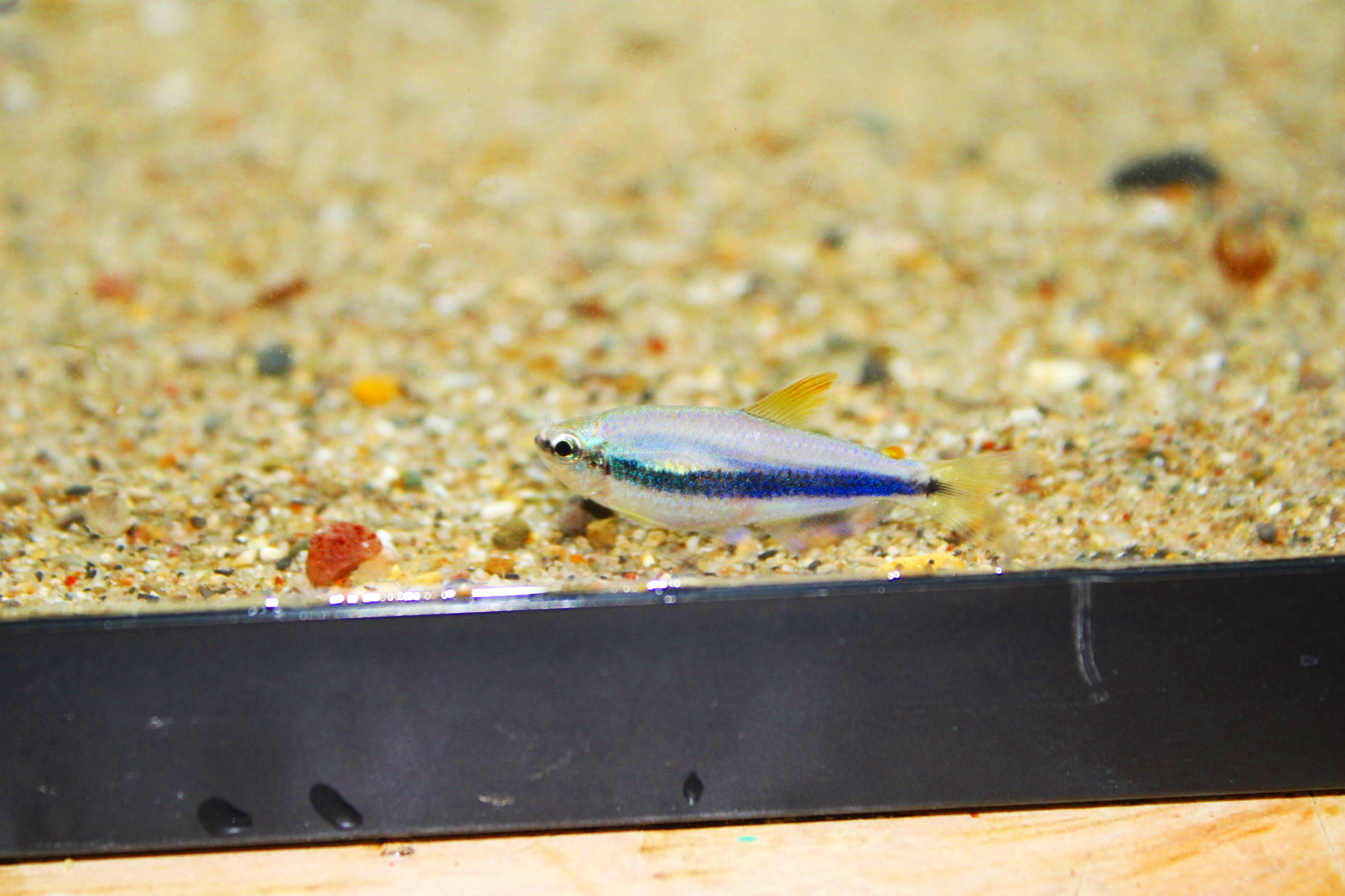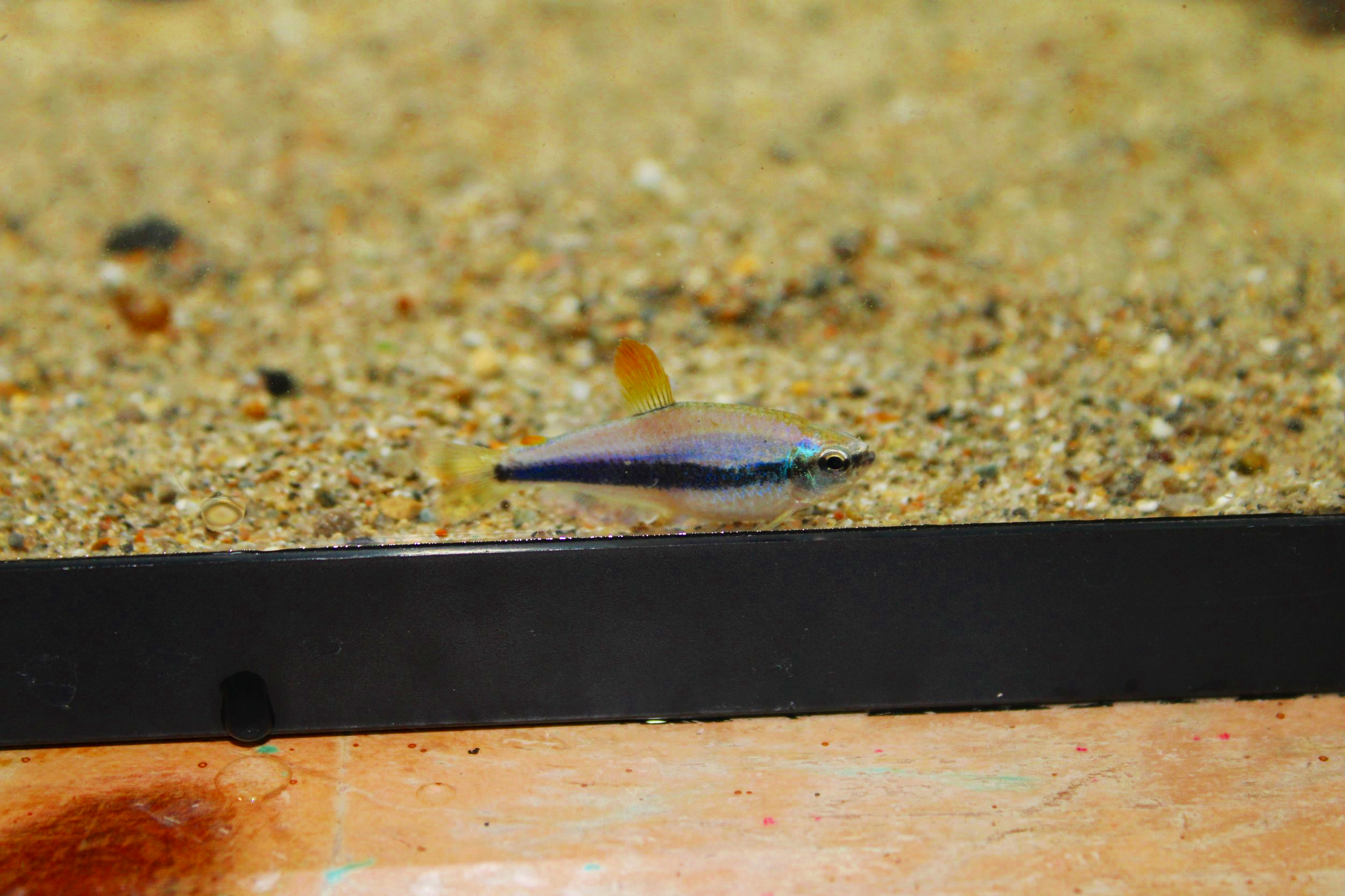 Image 1 of 3
Image 1 of 3

 Image 2 of 3
Image 2 of 3

 Image 3 of 3
Image 3 of 3




Panda Corydoras
The Panda Corydoras is a beloved freshwater catfish named for its distinctive black patches around the eyes, resembling a panda’s face. With a cream-to-pinkish body and bold black markings on the eyes, dorsal fin, and tail base, these corys bring charm and activity to the bottom of any community aquarium.
Native to cool, slow-moving tributaries of the Amazon River in Peru and Ecuador, Panda Corys are social fish that thrive in peaceful tanks with soft substrate and clean water. They’re best kept in groups of six or more, where their natural schooling behavior shines. Their gentle foraging keeps uneaten food from settling and helps maintain tank cleanliness.
Key Features
Scientific Name: Corydoras panda
Common Name: Panda Cory, Panda Catfish
Size Shipped: ~0.5-1 inch
Adult Size: ~2 inches
Temperament: Peaceful, social bottom-dweller
Lifespan: 5–8 years
Swimming Level: Bottom
Origin: Tank-raised (not wild-caught)
Ideal Water Parameters
Temperature: 68°F – 77°F (20°C – 25°C)
pH: 6.0 – 7.5
GH: 3 – 10
KH: 2 – 6
Minimum Tank Size: 10–20 gallons (for a small group)
Substrate: Soft sand or smooth gravel
Aquascape: Planted with open foraging zones and hiding places
Filtration: Clean, well-oxygenated water with low to moderate flow
Why Choose Panda Corydoras?
✔ Iconic panda-like black eye patches and fins
✔ Perfect for peaceful, community tanks
✔ Active, curious bottom cleaners
✔ Easy to care for and great for beginners
✔ Schooling species that thrives in groups
Feeding & Diet
Sinking pellets and algae wafers
Frozen or live foods: bloodworms, daphnia, baby brine shrimp
Occasional blanched vegetables (e.g., zucchini, spinach)
Feed once or twice daily in small amounts
Panda Corydoras are a fun, gentle, and eye-catching addition to any tropical freshwater setup. Their playful schooling behavior, ease of care, and peaceful temperament make them ideal for hobbyists of all levels — especially in planted aquariums and nano community tanks.
The Panda Corydoras is a beloved freshwater catfish named for its distinctive black patches around the eyes, resembling a panda’s face. With a cream-to-pinkish body and bold black markings on the eyes, dorsal fin, and tail base, these corys bring charm and activity to the bottom of any community aquarium.
Native to cool, slow-moving tributaries of the Amazon River in Peru and Ecuador, Panda Corys are social fish that thrive in peaceful tanks with soft substrate and clean water. They’re best kept in groups of six or more, where their natural schooling behavior shines. Their gentle foraging keeps uneaten food from settling and helps maintain tank cleanliness.
Key Features
Scientific Name: Corydoras panda
Common Name: Panda Cory, Panda Catfish
Size Shipped: ~0.5-1 inch
Adult Size: ~2 inches
Temperament: Peaceful, social bottom-dweller
Lifespan: 5–8 years
Swimming Level: Bottom
Origin: Tank-raised (not wild-caught)
Ideal Water Parameters
Temperature: 68°F – 77°F (20°C – 25°C)
pH: 6.0 – 7.5
GH: 3 – 10
KH: 2 – 6
Minimum Tank Size: 10–20 gallons (for a small group)
Substrate: Soft sand or smooth gravel
Aquascape: Planted with open foraging zones and hiding places
Filtration: Clean, well-oxygenated water with low to moderate flow
Why Choose Panda Corydoras?
✔ Iconic panda-like black eye patches and fins
✔ Perfect for peaceful, community tanks
✔ Active, curious bottom cleaners
✔ Easy to care for and great for beginners
✔ Schooling species that thrives in groups
Feeding & Diet
Sinking pellets and algae wafers
Frozen or live foods: bloodworms, daphnia, baby brine shrimp
Occasional blanched vegetables (e.g., zucchini, spinach)
Feed once or twice daily in small amounts
Panda Corydoras are a fun, gentle, and eye-catching addition to any tropical freshwater setup. Their playful schooling behavior, ease of care, and peaceful temperament make them ideal for hobbyists of all levels — especially in planted aquariums and nano community tanks.


